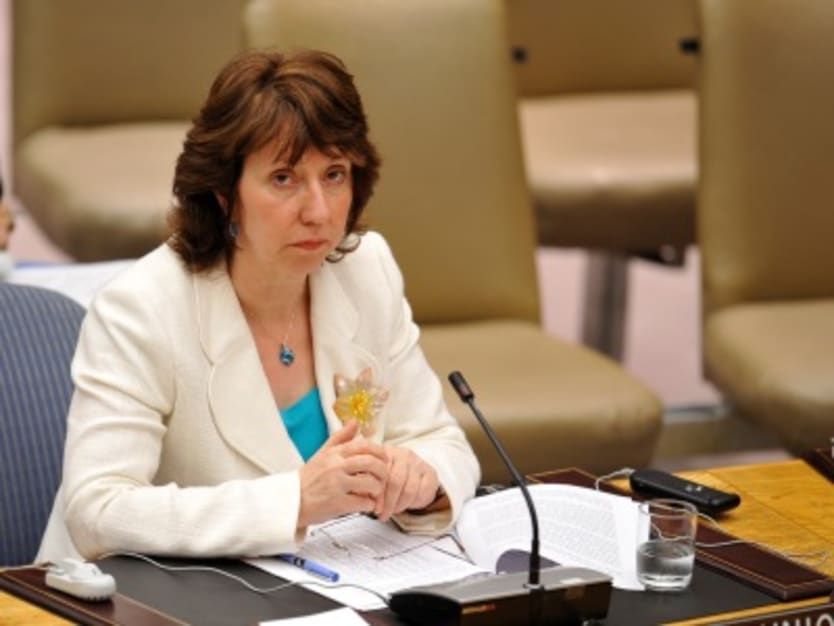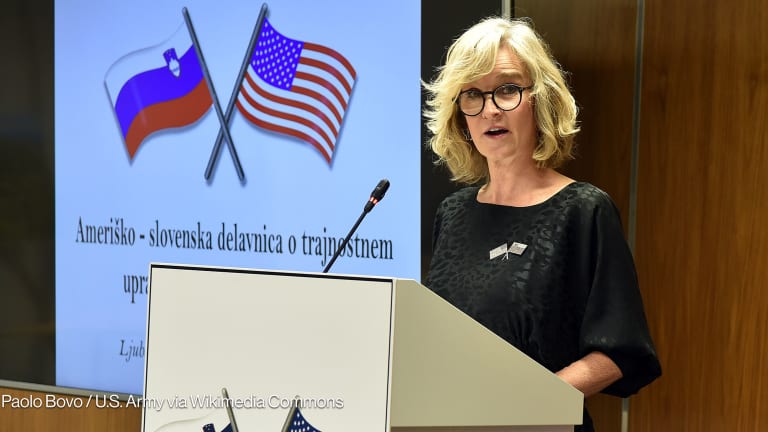
The European Union’s foreign affairs chief, Catherine Ashton, drew flak from members of the European Parliament over the reported underrepresentation of women and Eastern Europeans in the bloc’s external relations service.
Members of the European Parliament warned that the budget of the European External Action Service could be blocked if geographical and gender balance are not observed in selecting diplomats.
A study put together by the state-funded Polish Institute for Foreign Relations found that of the current 115 ambassadors, only 11 are women. A handful of Western nations - Belgium, the Netherlands, Italy, France, Germany, Spain and the U.K. - accounted for 86 of the delegation chief positions, the study noted.
“What we encounter here is an over-representation of citizens from 11 countries… while the representation of 16 member states, including Poland, is inadequate,” the PISM report stated, according to Telegraph.co.uk.
This “lack of gender and geographical balance,” according to MEPs, suggests a deviation from an EU law that established the EEAS, which states that “recruitment to the EEAS shall be based on merit whilst ensuring adequate geographical and gender balance.”
Unless Ashton “gives a commitment to recruit more women and Eastern Europeans,” MEPs are threatening to stall the introduction of the diplomatic corps.
“The EEAS must not become a Western European old boys club,” said German MEP Franziska Brantner, urging Ashton to “change course immediately and considerably increase the proportion of women in the new service.”
Brantner adds, “As long as this is not the case Parliament will be asked to freeze the funding for the EEAS.”
Polish MEP Jacek Saryusz-Wolski said the European Parliament seeks to put forward its draft proposal for the staff and budget regulations of EEAS in late October. He said Ashton is stalling the nomination process in a bid to secure first the approval of MEPs, EUobserver reports.
“I believe perhaps that this is why she is waiting,” he said. “She wants to have everything ready by 1 December. But we can wait.”
Ashton was expected to reveal the first batch of 31 appointments for various posts including heads and deputy heads of delegations “shortly after coming back” from her trip to China on Sept. 5, EUobserver reports. These posts cover missions to Brazil, China, Georgia, Japan and South Africa.
A spokesman for Ashton said it was up to member states to ensure “fair balance” in EEAS.
“The aim is to ensure that the best and brightest people get jobs in the EEAS. The High Representative has stated this on several occasions but she will also be sympathetic to the need for a gender and geographical balance as well,” Telegraph.co.uk quoted the spokesman as saying. “However, it is also up to the EU institutions and member states to nominate women as well as men for EEAS posts.”








